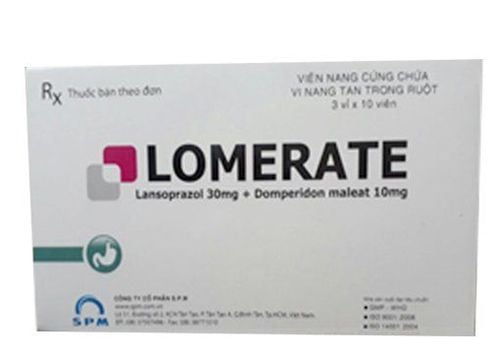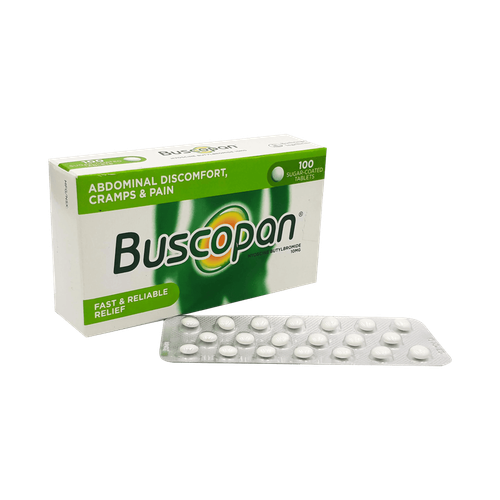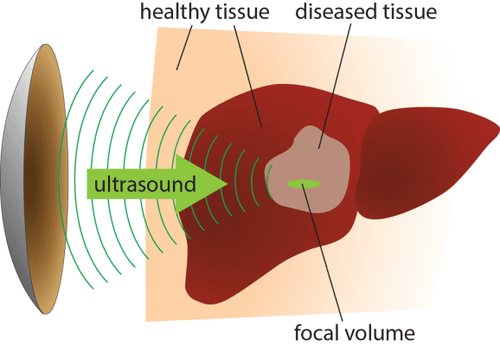This is an automatically translated article.
Dicyclomine is a medicine used to treat irritable bowel syndrome, which belongs to a group of drugs called anticholinergics. The mechanism of action of anticholinergics is to block the action of acetylcholine. Thereby, thanks to the group of anticholinergic drugs that have a direct relaxing effect on the muscles, Dicyclomine is used to reduce the contraction of the muscles in the intestine, improving the discomfort for patients with irritable bowel syndrome.1. What is Dicyclomine?
Dicyclomine is indicated for the treatment of patients with irritable bowel syndrome. Dicyclomine's mechanism of action is to reduce spasms of the smooth muscles of the gastrointestinal tract. Animal studies indicate that this effect is achieved through the mechanism of anticholinergic action on acetylcholine receptor sites. This is a chemical transmitter that nerves release to cause muscles to contract, through inhibition of acetylcholine receptors on muscle cells.
In addition, the anticholinergic effects of Dicyclomine can inhibit salivary and sweat secretion, decrease secretion and total gastrointestinal motility, cause drowsiness, dilate pupils, increase heart rate and impaired reduced overall motor function.
2. How to use Dicyclomine?
Dicyclomine medicine has many dosage forms with the corresponding content and route of administration as follows:
Capsules for oral use, with a content of 10 mg Tablets for oral use, with a content of 20 mg Syrup for oral use oral dose of 10mg / 5ml Intramuscular injection has a volume of 20mg / 2ml Dosage must be adjusted according to the condition and symptoms of each patient.
Oral: The recommended starting dose is 20 mg, four times a day. After one week of treatment with the initial dose, the dose may be increased to 40 mg four times a day unless the patient experiences side effects that increase with dose. If efficacy is not achieved within 2 weeks or adverse reactions occur at doses below 80 mg daily, the drug should be discontinued. Safety data have not been obtained for doses above 80 mg daily for longer than 2 weeks.
Intramuscular route: Drugs formulated for intramuscular injection must be administered only through intramuscular route without any other route. The recommended intramuscular dose is 10mg to 20mg four times a day. This method is only used for 1 or 2 days when the patient cannot take oral medication. Intramuscular injection has twice the bioavailability compared to oral administration.
Drug products for parenteral use must be visually inspected for particulate matter and discoloration prior to use. Check the syringe before injecting to avoid intravascular injection because of the risk of thrombosis if the drug is accidentally administered intravascularly.

Thuốc Dicyclomine cần được sử dụng theo đúng chỉ định của bác sĩ
3. Contraindications to taking Dicyclomine
Dicyclomine is contraindicated in the following cases:
In neonates under 6 months of age Unstable cardiovascular conditions Myasthenia gravis Glaucoma Glaucoma Diseases causing obstruction in the digestive tract Ulcerative colitis Serious Gastroesophageal reflux disease 4. Possible side effects when taking Dicyclomine 4.1 Inadvertent use of the drug by mistake Dicyclomine solution is only for intramuscular injection and should not be used by any other drug. any other path. Accidental intravenous injection can lead to thrombosis, thrombophlebitis, and injection site reactions such as pain, edema, skin discoloration, and reflux sympathomimetic syndrome.
4.2 Cardiovascular Events Dicyclomine should be used with caution in conditions of tachycardia such as thyrotoxicosis, congestive heart failure and in cardiac surgery, conditions where further stimulation of the heart rate may occur. fast. Therefore, it is important to investigate any possible cause of tachycardia before prescribing dicyclomine.
In addition, when taking Dicyclomine, patients with ischemic coronary artery disease and infarction may worsen or develop new events, and this risk is also increased in these patients. idiopathic hypertension alone.
4.3 Effects on the peripheral and central nervous system The adverse effects of dicyclomine are a consequence of its inhibitory effect on autonomic nervous system muscarinic receptors. These include dry mouth, difficulty swallowing and speaking, thirst, decreased bronchial secretions, dilated pupils and photophobia, flushing and dry skin, transient bradycardia followed by reflex tachycardia, decreased gastrointestinal motility and constipation. Dicyclomine CNS side effects include confusion, disorientation, short-term amnesia, hallucinations, gastrointestinal disturbances, hypothermia, coma, euphoria, and fatigue. fatigue, insomnia, agitation and inappropriate reactions. Psychiatric disturbances have also been reported in susceptible individuals to anticholinergics. CNS signs usually resolve within 12 to 24 hours after discontinuation of the drug.
In addition, Dicyclomine can cause drowsiness, dizziness or blurred vision. Patients should be warned not to engage in activities that require mental alertness, such as operating a motor vehicle or machinery or performing hazardous work while taking Dicyclomine.
4.4 Onset of myasthenia gravis In overdose, Dicyclomine can cause neuromuscular blockade, leading to muscle weakness and possibly muscle paralysis. Therefore, dicyclomine should not be used in patients with myasthenia gravis, except to reduce the adverse muscarinic effects of anticholinesterase.
4.5 Intestinal Obstruction Diarrhea can be an early symptom of incomplete intestinal obstruction, especially in patients with ileostomy or colectomy. In this case, drug treatment would be inappropriate and could be harmful.
Ogilvie's syndrome (pseudomembranous colitis) has been reported as a side effect of dicyclomine although rarely. This is a clinical presentation with signs, symptoms and radiographic findings of acute colonic obstruction but without evidence of mechanical obstruction in the colonic lumen.

Thuốc Dicyclomine có thể gây hội chứng giả tắc ruột ogilvie
4.6 Increased permeability of exotoxins Under the smooth muscle relaxant effect on the intestinal wall, anticholinergic drugs in general and Dicyclomine in particular increase the permeability of exotoxins through the intestinal wall, especially in patients with Salmonella dysentery .
4.7 Effect of ulcerative colitis Caution should be exercised in administering Dicyclomine to patients with ulcerative colitis.
Large doses of Dicyclomine may inhibit intestinal motility to the point of paralytic ileus, and its use may precipitate or worsen serious complications of colonic hypertrophy.
Therefore, Dicyclomine is contraindicated in patients with severe ulcerative colitis.
4.8 Prostate Enlargement Stimulation Dicyclomine should be used with caution in patients with known or suspected prostatic hypertrophy, which may lead to urinary retention.
4.9 Effects on Liver and Kidney Function Dicyclomine should be used with caution in patients with known hepatic and renal impairment because of the potential for liver and kidney effects.
4.10 Increased risk in geriatric subjects Dicyclomine hydrochloride should be used with caution in elderly subjects as it may be susceptible to its adverse effects.
5. Possible drug interactions when taking Dicyclomine
Anti-glaucoma drugs Anticholinergics in general, and Dicyclomine in particular, have an antagonistic effect on the effects of anti-glaucoma drugs.
Accordingly, the use of anticholinergic drugs in the presence of glaucoma can be dangerous, especially when used concurrently with agents such as glaucoma stimulants such as corticosteroids. At the same time, the use of the drug Dicyclomine in patients with glaucoma is not recommended.
Drugs that share anticholinergic activity The following drugs that may potentiate the effects or adverse reactions of anticholinergics include amantadine, class I antiarrhythmics, MAO inhibitors, narcotic analgesics. anesthetics, nitrates and nitrites, sympathomimetics, tricyclic antidepressants, and other drugs with anticholinergic activity.
Other Gastrointestinal Drugs Interactions with other gastrointestinal motility drugs may antagonize the effect of dicyclomine drugs that alter gastrointestinal motility, such as metoclopramide.
Effects of Antacids Because antacids can interfere with the absorption of anticholinergics as well as Dicyclomine, the concomitant use of antacids should be avoided.
Impact on absorption of other drugs Anticholinergics may affect the gastrointestinal absorption of other drugs by affecting gastrointestinal motility, such as dosage forms. of digoxin.

Thuốc Dicyclomine tương tác với một số loại thuốc khác
In summary, Dicyclomine is used to treat the symptoms of irritable bowel syndrome through an anticholinergic mechanism. However, due to other concomitant effects on the autonomic nervous system, it is advisable to prescribe and adjust the dose of Dicyclomine as necessary, while providing effective control of gastrointestinal discomfort. while avoiding adverse reactions, ensuring patient safety.
Please dial HOTLINE for more information or register for an appointment HERE. Download MyVinmec app to make appointments faster and to manage your bookings easily.
References: webmd.com, accessdata.fda.gov, medicinenet.com













